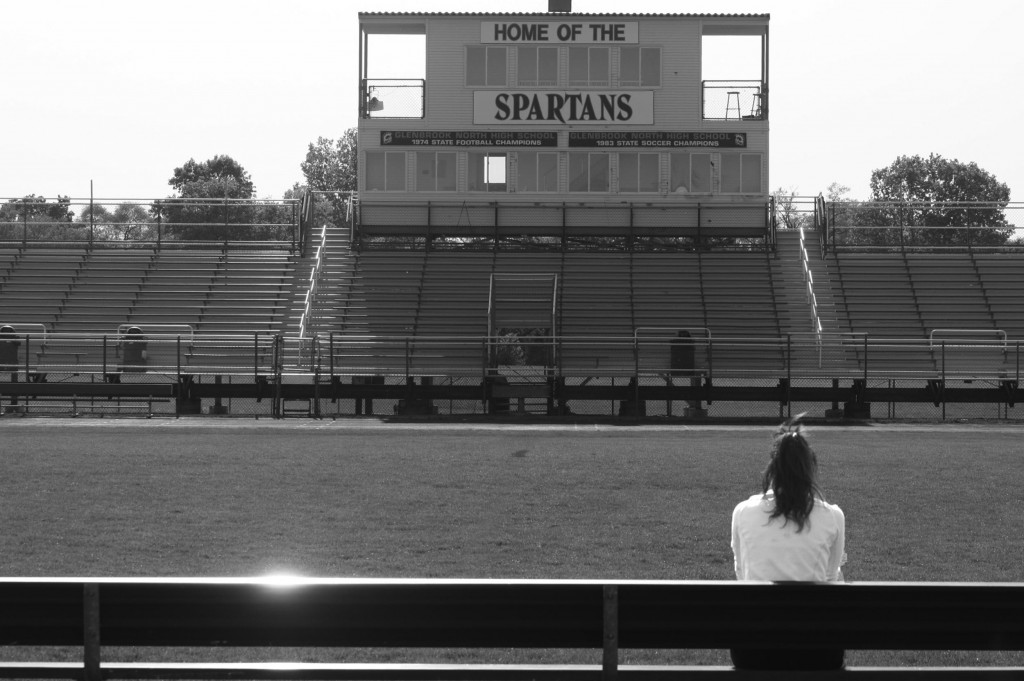Members of a Glenbrook North athletic team were recently found in violation of Board Policy while on a team trip.
One player involved, who wishes to remain unnamed, said the team returned home before playing a single game.
This player was suspended from school for 10 days for illegal substance use, which was later reduced to five after agreeing to attend counseling. The player said other teammates who were also involved faced similar consequences.
“[We also had] nine weeks of restricted study hall, no open lunch, [no] parking privileges [and] nine weeks of no school activities,” the player said.

“We can’t go to any sporting events or anything like that, which kind of sucks because we’re all involved people. We all like going to those things.
“Seniors can still walk on graduation, we can still graduate. We’re allowed to go to Grad Night and Senior Awards.”
The player was also suspended for a number of the team’s games based on the guidelines set forth in the Glenbrook Code of Conduct.
In addition to consequences from the school and athletic department, this player said playing time was lost once reinstated to the team.
The player’s coach declined to comment for this article.
While some students reached out with support, the player said some of her peers began making “really nasty” comments.
“There’s no way to react to that,” said the player. “People always say to ignore it, but you can’t ignore stuff like that, I think. It’s really hard to.”
Following this incident, Athletic Director John Catalano said he does not foresee any changes in policy for future team trips.
“I speak with every head coach that’s taking a trip with the kids beforehand to make sure everyone is clear on it, and we make sure we know who is on the trip,” said Catalano. “We make sure we have more than adequate supervision, so it’s not like we go about and send them out on their own anyway.”
School officials declined to comment about the specific details of this incident for a variety of reasons, including legal and privacy concerns.
Student Drug Use: Policies and Programs
When asked about the possibility of drug testing students, Principal Paul Pryma said the administration has not pursued that course of action.
“I don’t think the solution is to spend energy trying to chase down those folks that want to venture into that activity,” said Pryma. “I think our energies are much better forwarded by just loving. I genuinely believe if students feel they belong and they feel that they’re loved and they feel that they’re respected, then they’re typically going to make good decisions for themselves.”

While the administration is satisfied with its current programs addressing illegal substance use, William Eike, assistant principal and dean of students, said it will look to improve existing programs and create new ones. A Snowball program, which encourages students to examine healthy living choices such as abstaining from drugs and alcohol, is expected to be introduced next year. According to Eric Etherton, assistant principal for student services, the program would include meetings, fundraising activities, awareness initiative and a two-day retreat in the spring.
Etherton is also a member of the Student Assistance Program, which consists of faculty members who aim to help the social-emotional development of students while operating in a non-punitive manner. The program accepts referrals for students who may need support, which can be submitted directly to a counselor or anonymously through a locked box outside of Student Services. Etherton estimates that of the almost 150 referrals received each year from students, parents and teachers, close to half are for drugs or alcohol.
Detective Matthew Szymanski said the Northbrook Police Department also has social workers who can provide counseling and help with prevention.
“If a student came in on their own accord, there wouldn’t be punitive measures,” said Szymanski. “That to us is a cry for help.”
According to Eike, the school used to have a “zero-tolerance policy,” which has been changed in the last decade. Under the “zero-tolerance policy,” the first violation of the school’s illegal substance policy would result in a ten day suspension and the student being sent to the Board of Education for possible expulsion.
“A lot of people felt that this was a very harsh type [of] penalty, and they felt that we needed to start to incorporate more of a therapeutic component to it for students,” Eike said.
Although Eike said the administration and faculty do a nice job concerning awareness of illegal substances, they need help to curb usage by students.
“As far as taking it to the next level, I think it boils down to the parents and then as far as the student’s peer group, people who are there on a daily basis with them, who know the individual personally and might know the trials and tribulations that they go through,” Eike said.
Szymanski said parents can take a role in stopping the use of illegal substances through measures such as monitoring their child’s social networking sites.
“A lot of times students will try to sneak things from their parents and the parents are unaware of it, so it’s a good idea for a parent to be aware of what their student does, who they hang out with [and] make sure there’s no type of drug or alcohol use going on,” Szymanski said.
While Pryma said the vast majority of parents do a great job in discouraging the use of illegal substances, others are not working with the administration towards a solution.
“There’s a handful of knuckleheads that aren’t helping us, that welcome alcohol and drugs into their home and make it available for kids, and they don’t recognize that the rippling effect of their knuckleheaded-ness is harming children,” Pryma said.

